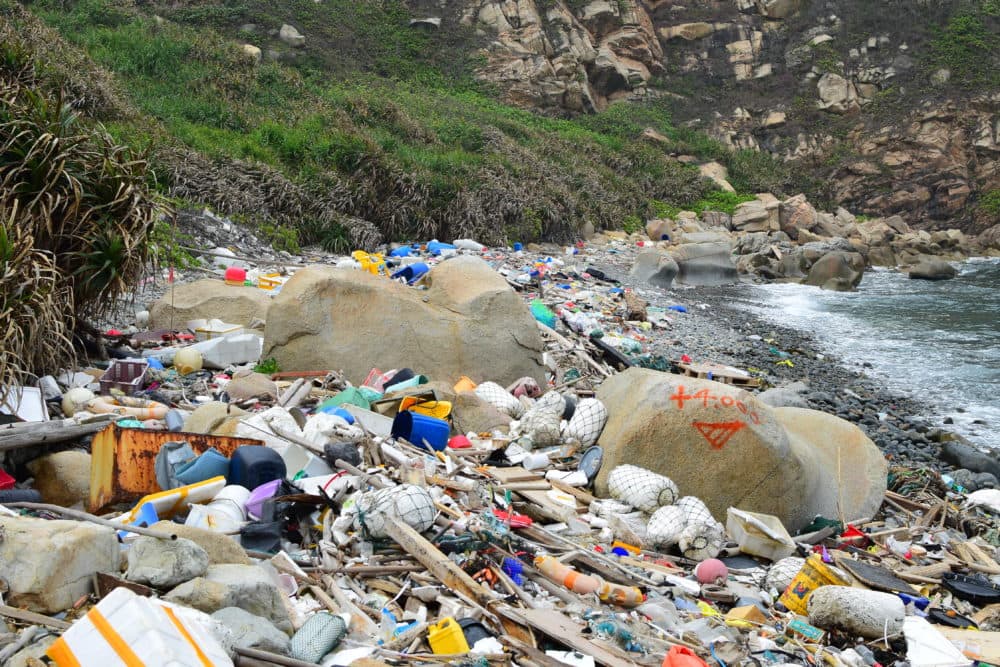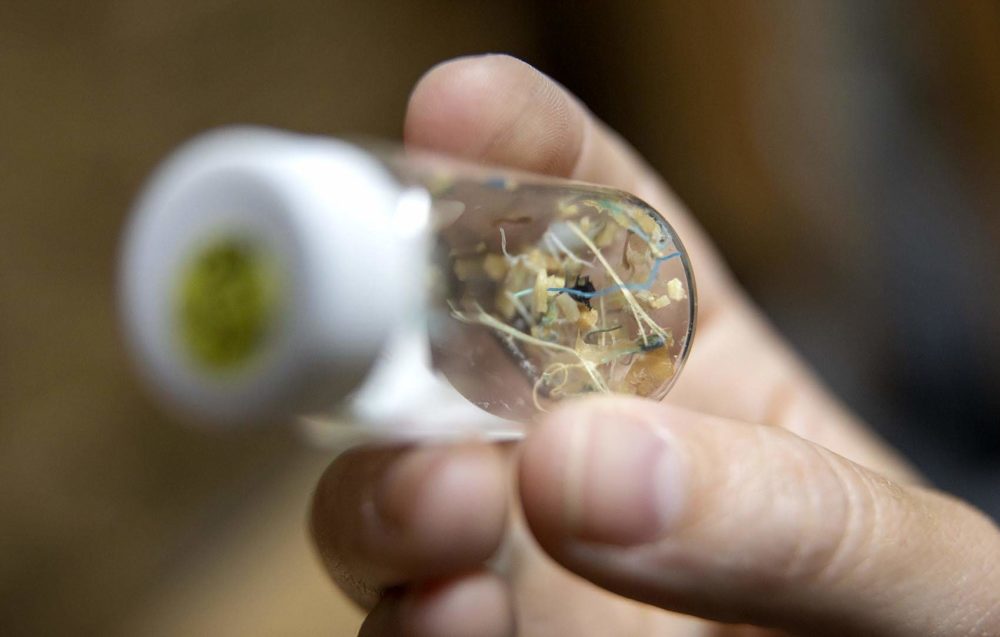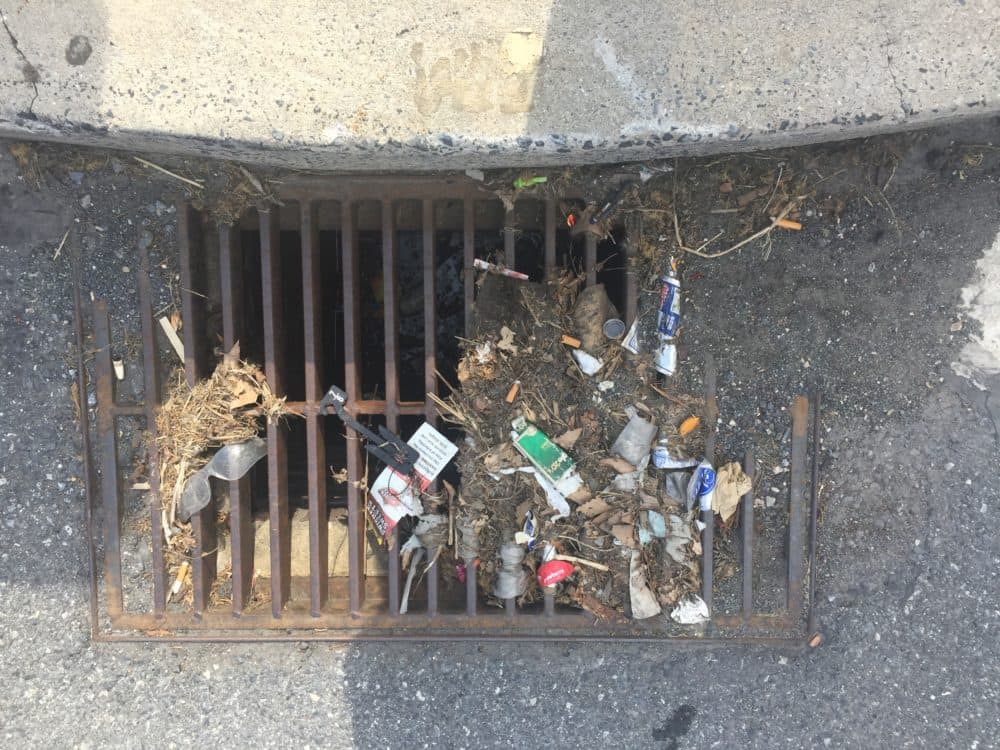Advertisement
Study: U.S. Generates More Plastic Waste Than Any Other Country

The United States generated 42 million metric tons of plastic waste in 2016 – more than any other country in the world, according to a study published Friday in Science Advances. And it's not just because the U.S. has a lot of people: that year we accounted for just 4% of the global population, but 17% of all plastic waste.
"The numbers are inconceivable to the average person," says Laura Ludwig, who runs the Marine Debris and Plastics Program at the Center for Coastal Studies in Provincetown. Ludwig, who was not involved with the new study, says she hopes the paper will bring visibility to the problem of plastic pollution, and "reveal the sheer volume of the issue."
According to the study, up to 5% of the United States' plastic garbage ended up as "mismanaged waste" — tossed as litter or dumped illegally in the U.S., or improperly handled after being shipped to other countries for recycling. That may seem like a small percentage, but it adds up: the researchers estimate that up to 2.24 million metric tons of American-made plastic trash is getting dumped where it shouldn't be.
"We have to acknowledge that plastic waste in the environment is a global problem ... and the United States is probably disproportionately contributing," says lead study author Kara Lavender Law, a research professor of oceanography at the Sea Education Association in Woods Hole. Law says the U.S. needs to manage plastic waste better, and also make less of it, "because unless you stop making it, you're still going to have to face the challenge of managing it."
The study estimates that up to 1.45 million metric tons of U.S. plastic waste ended up in within 50 kilometers of a coastline. This means the U.S. is likely one of the top coastal plastic polluters in the world; by some calculations, we come in third out of the top 50.
"That's higher than I thought," Law says. "But then when you think about the fact that the United States produces more plastic waste than any country in the world, then perhaps it shouldn't be so surprising."

Scientists have documented the growing issue of plastic pollution for decades, with a recent study estimating that about 710 million metric tons of plastic could enter the environment by 2040 even in a best-case scenario.
Ludwig, at the Center for Coastal Studies, says the coastal impacts of plastic waste are widespread, and often felt more in other parts of the world than on U.S. coasts. Researchers have found that marine animals — like seabirds and corals -- have been harmed or killed from ingesting plastics. Ludwig says she hopes the new study will propel the search for solutions.
"We need to curb our use of the stuff. We need to make some alternatives to it," she says. "And as consumers we need to rethink our habits."
To calculate the U.S. contribution to plastic pollution, Law and her colleagues used waste generation data from the World Bank, and Environmental Research & Educational Foundation, a research institute specializing in sustainable waste management, as well as data from the cities of San Jose and Sacramento, California, and Columbus, Ohio. They also analyzed U.S. 2016 plastic waste exports, finding that 89% of waste was shipped to countries that inadequately managed more than 20% of waste.
Law notes that the study’s data, the most recent available, is now several years old, but expects that the waste has only increased because of the COVID-19 pandemic.

The researchers noted significant environmental justice implications to the plastic waste problem, including health impacts in the communities where production factories are located, the sometimes-poor working conditions in sorting facilities, and environmental concerns in countries where the U.S. ships plastic for recycling.
"We need to take a step back and look at our entire plastic economy, at the start from extraction and production, all the way down the pipe to where it reaches waste," says study co-author Nick Mallos, senior director of Ocean Conservancy’s Trash Free Seas program. "Recycling has to be done in an equitable, accessible and effective manner, and in the United States that means we need to drastically overhaul our systems."
